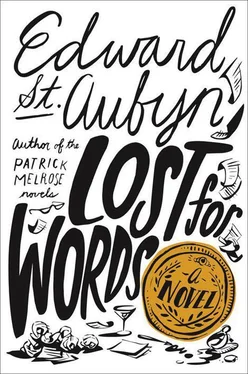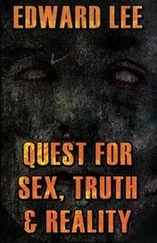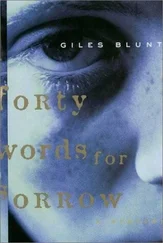* * *
The word ‘professionalism’ stung Penny with guilt about the previous night. She was meant to be baby-sitting for Nicola, but had quite simply forgotten until it was too late. Nicola had always reproached Penny for being a neglectful mother, and now she was going to have ‘neglectful grandmother’ added to the list of her crimes. Whatever her daughter might think, when push came to shove, she had a strong maternal side. Nevertheless, she was the first to admit that public service had taken the lion’s share of her attention. Nicola had become a latchkey kid, travelling on the Underground to school at an early age, letting herself in and making her own tea, putting herself to bed, booking her own holidays and going off with other families to unknown foreign destinations. It hadn’t been ideal, but at least it had helped to make the her independent.
The night before Nicola had been planning to see Chitty Chitty Bang Bang , a ritual she repeated on the anniversary of the occasion that Penny had promised to take her but had been forced to let her down. President Reagan had just invaded Grenada, or at least sent some Marines to invade Grenada, and Penny had felt that she simply had to stay at her desk to help draft the Foreign Office response. Even then she had been a writer, although a team of specialists handled the actual wording.
Penny couldn’t help wincing from the memory of last night’s telephone call to Nicola.
‘Don’t worry, darling, I’m on my way,’ she reassured Nicola when she suddenly remembered what she was supposed to be doing.
‘Don’t fucking bother,’ Nicola shouted. ‘I’m going to miss the show again anyway.’
‘I don’t know if it’s escaped your notice,’ said Penny, ‘but I’m part of the team that’s been put in charge of English Literature this year and, whether you like it or not, that’s a pretty big responsibility.’
‘Oh, piss off,’ said Nicola and hung up.
Penny’s own childhood had taken place during the Second World War. Her earliest memory was of sitting in her nursery one afternoon, playing with her favourite toy, a lovely doll’s house with a pretty red and white chequered tablecloth in its kitchen, and a little kitten sitting curled up by the fire in the living room. Suddenly, with a dreadful screeching sound, a hole appeared in the floor only a few inches from where she was sitting, and her doll’s house disappeared. A bomb had dropped straight onto her house, ripping through the roof, the nursery, her parents’ bedroom, the dining room, and finally getting lodged in the basement, unexploded.
Nowadays that would mean instant counselling, but in wartime Britain you picked yourself up, avoiding the gaping hole in the middle of the room, and carried on. And what’s more, you remembered to count your blessings. Yes, there was an unexploded bomb in the foundations of your childhood home, undermining its rental value and putting your parents under considerable financial strain, but you never forgot that if there was one thing worse than an unexploded bomb, it was a bomb that did explode.
All her life Penny felt that showing emotion was a sign of weakness. Emotions were what other people were allowed to have. She was there to help, and although she might not have all the answers, or even a very clear idea of what people were talking about when they talked about their feelings, she could make sure that the kettle was on, or the gin and tonic ready to hand, so that things would start to look better for those who were struggling.
Penny scrolled down to her latest paragraph. She wanted to get at least a thousand words written before lunch. But she was also determined to shake off her dependency on some highly addictive software called Ghost and the two ambitions might be hard to reconcile.
At the beginning of her trilogy, Penny had liked basic Ghost so much that she went on to buy Gold Ghost and Gold Ghost Plus. When you typed in a word, ‘refugee’ for instance, several useful suggestions popped up: ‘clutching a pathetic bundle’, or ‘eyes big with hunger’; for ‘assassin’ you got ‘ice water running through his veins’, and ‘his eyes were cold narrow slits’. Under ‘shoes’ you got ‘badly scuffed’, ‘highly polished’, ‘seen better days’, and ‘bought in Paris’. If you typed ‘river’ into Gold Ghost Plus, you got ‘dark flood flecked with gold’, or ‘wearing her evening gown of fiery silk’. When you looked up ‘thought’, you found ‘food for’ and ‘perish the’. She could scroll and click, scroll and click all day, with the word count going up in leaps and bounds.
She found herself getting weekly crushes on writing tricks of one sort or another: cricket metaphors, when everyone started playing with a straight bat, or dropping an easy catch; or it was descriptions of the weather that set her imagination on fire, and clouds appeared in the sky like ‘big sponges’, or covered cities like ‘a wet blanket’. Her word of the week last week had been ‘imperceptibly’. One of her characters had ‘glanced imperceptibly’, while another had ‘imperceptibly moved her hand’. The action had generally taken on an imperceptible air, which set it apart from a run of the mill thriller.
Roger and Out was the third volume of her trilogy. When all was said and done, the first volume, Follow That Car , had been tepidly received, but the sequel, Roger That , secured a smashing review in the Daily Express . She had the key quote, ‘ Feathers knows her stuff ’, blown up, framed and hanging in the guest loo of her cottage in Suffolk. She sometimes had a funny feeling when she realized that she would soon be parted from the characters she’d been living with all these months. Was it sadness? She wasn’t sure, but whatever it was, she wasn’t going to dwell on it.
Didier’s arm was looped over Katherine’s shoulder, one hand spread across her still-pounding heart, the other cupped over the hard curve of her navel ring.
Didier wondered again if there was not something excessive, something obscene, about his enjoyment of Katherine’s body. Once its material desires had been satisfied, commodity fetishism moved on to amorous and spiritual dimensions. He was living, engulfed by a mental fog analogous to religious fervour, in a late capitalist utopia of obligatory permissiveness, with its injunction to gratify ever more perverse desires.
‘What does it mean when we say…’ Didier began.
‘Shhh,’ said Katherine. Half her motive for sex was to let her mind fall silent. Didier’s compulsion to talk, to analyse everything, to live in a perpetual semiotic frenzy, was one of the reasons their affair had been so brief. She also didn’t want Didier to think that they were having a general revival. She was just dealing with the emergency, or taking advantage of the opportunity, it was hard to know which, of Alan’s absence. They had worked hard on editing her novel when she got back from India and then he had gone to a conference in Guttenberg on the future of the book. For him that counted as work, but she was left dangerously unemployed.
Shhh, she must stop as well. She had only just finished making love and she was already chattering. She thought of an empty train shooting through an empty station at night, an image of her mind without words. How beautifully unnecessary they seemed at that moment, but soon it would be rush hour, with hardly enough words getting off the crowded train to allow any words from the crowded platform to get on. Everything congested with words, everything spoken for; conversations, dialogues, monologues, interior monologues, all the way down, words staining the marrow, pretending that nothing existed without them. She almost wanted to make love again to get back to silence, but Sam was coming for a drink in half an hour, with the inevitable punctuality of a lovesick man. She must get ready.
Читать дальше












